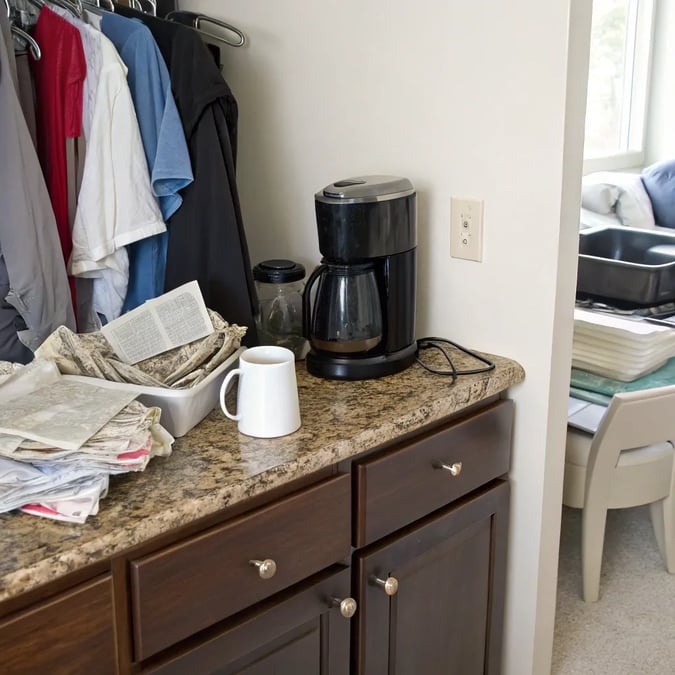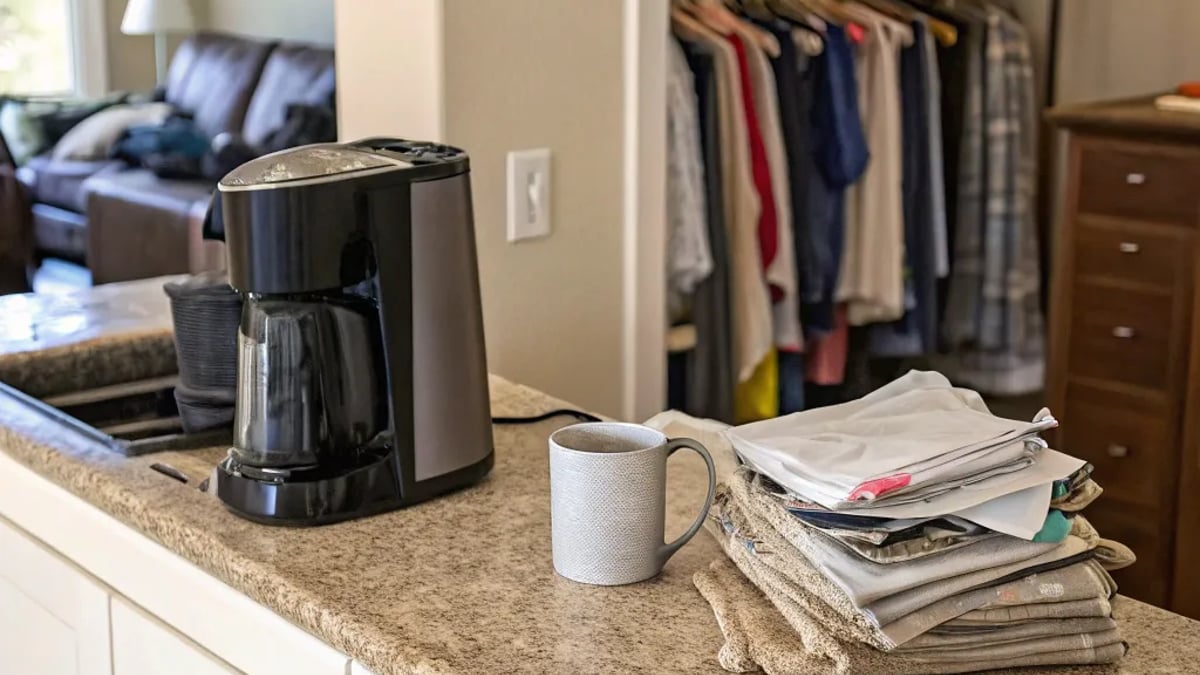
We all have those little habits that seem harmless in the moment but can seriously impact our financial health over time. While you might be focused on big expenses like rent or car payments, it's often the small, daily choices that quietly chip away at your bank account. Let's explore some common habits that might be costing you more than you realize.
1. The Daily Coffee Shop Ritual
That morning stop at your favorite coffee shop might seem like a small treat, but do the math: a $5 specialty coffee five days a week adds up to about $1,300 annually. Making coffee at home costs roughly 30-50 cents per cup, potentially saving you over $1,000 per year.
Jenna from Portland told me she switched to brewing at home during the pandemic and was shocked to find she'd saved nearly $1,500 by year's end. "I actually bought a fancy espresso machine with some of the savings and still came out ahead," she said.
2. Unused Subscriptions and Memberships

We've all been there – signing up for streaming services, apps, or gym memberships with the best intentions, only to barely use them. A recent survey found that Americans spend an average of $273 monthly on subscription services, with most people underestimating this amount by $133 when asked.
Take a few minutes to audit your subscriptions. Do you really need Netflix, Hulu, Disney+, HBO Max, and Amazon Prime? Or could you rotate through them seasonally based on what shows you're watching?
3. Impulse Buying During Sales
Sales can actually make us spend more, not less. The psychology is simple – we feel like we're getting a deal, so we buy things we hadn't planned to purchase.
"I used to fall for every 'limited time offer' that came my way," admits Alex, a financial coach from Chicago. "Now I ask myself if I would've bought the item at full price. If the answer is no, I usually walk away."
4. Eating Out Too Frequently
The convenience of takeout or restaurant meals comes at a steep premium. On average, eating out costs 5 times more than preparing the same meal at home. Even seemingly inexpensive fast food adds up quickly.
Try meal prepping on weekends or designating specific days as "no-takeout days" to break the habit gradually.
5. Paying for Convenience
Those pre-cut fruits and vegetables at the grocery store? You're paying a premium of about 40% for the convenience. Same goes for pre-packaged snack portions, delivery fees, and rush shipping.
These small conveniences might seem worth it in the moment, but they represent one of the biggest drains on your wallet over time.
6. Leaving Electronics Plugged In
"Vampire energy" is real – devices that stay plugged in continue drawing power even when turned off. The Department of Energy estimates this phantom power use accounts for 5-10% of residential energy consumption.
Using power strips that can be completely switched off can save you $100-200 annually, depending on how many devices you have.
7. Ignoring Small Maintenance Tasks
Skipping oil changes, ignoring that dripping faucet, or postponing HVAC maintenance might save money in the short term, but these decisions often lead to costly repairs later.
A leaky faucet dripping at one drop per second wastes about 3,000 gallons of water annually. Small maintenance issues rarely resolve themselves – they just become bigger, more expensive problems.
8. Buying Low-Quality Items
There's truth to the saying "buy nice or buy twice." Purchasing the cheapest option often means replacing items more frequently, spending more in the long run.
This doesn't mean you need the most expensive version of everything, but investing in quality for frequently used items usually pays off. As Reddit users discussed, sometimes spending more upfront leads to significant savings over time.
What Everyday Habits Actually Save You Money?
While some habits drain your wallet, others can fill it back up. According to discussions on r/Frugal, some of the most impactful money-saving habits include:
- Bringing reusable bags to avoid bag fees
- Using a programmable thermostat to reduce energy costs
- Carrying a refillable water bottle instead of buying bottled water
- Planning meals around grocery store sales
- Waiting 24-48 hours before making non-essential purchases
9. Not Investing Early Enough
Perhaps the most expensive habit is simply keeping your money in a low-interest savings account rather than investing it. While saving is important, money that isn't growing is actually losing value due to inflation.
Even small amounts invested regularly can grow significantly over time thanks to compound interest. Someone who invests $100 monthly starting at age 25 will have significantly more at retirement than someone who waits until 35 to begin.
10. Brand Loyalty Without Question
Being excessively brand-conscious without comparing alternatives costs Americans billions annually. From medications to clothing to household products, generic or store-brand alternatives often provide identical quality at a fraction of the price.
According to consumer studies, blind taste tests regularly show people can't distinguish between name-brand and generic products, yet continue paying premiums of 20-50% for the branded versions.
Taking Control of Your Financial Future
Breaking these wallet-draining habits doesn't require drastic lifestyle changes. Start by tracking your spending for a month to identify your personal financial leaks. Then tackle one habit at a time.
Remember that small, consistent changes often lead to the most sustainable financial improvements. Your future self (and wallet) will thank you.
Disclaimer: This content is for informational purposes only and should not be considered financial advice. Everyone's financial situation is different, and what works for one person may not work for another. Consider consulting with a financial professional for personalized guidance.
Tags

About Evan L. Chamberlain the Author
Evan L. Chamberlain is a seasoned personal-finance strategist with over 15 years of experience in helping individuals maximize their savings and efficiently manage debt. His approachable insights on budgeting and investment have empowered thousands to take control of their financial futures.
Recommended Articles
2026’s Most Talked-About Glasses for Women Over 60
Discover the latest eyewear trends for women over 60 in 2026, featuring bold frames, vibrant colors, and health-conscious designs.
The 2026 Senior Walking Aids Experts Recommend for Safety and Comfort
Explore expert-recommended walking aids for seniors in 2026, ensuring safety and comfort while enhancing mobility and independence.
How Rent-to-Own Homes Can Help You Build Equity Faster
Discover how rent-to-own homes enable faster equity building, providing a unique pathway to homeownership without immediate purchasing pressure.
Mortgage Relief Grants You May Qualify for in 2026
Explore available mortgage relief grants for 2026. Find out how to qualify for financial support to ease your home-related challenges.
Grants That Help Single Moms Buy Homes in 2026
Discover grants for single moms to buy homes in 2026. Learn about essential programs designed to ease the journey to homeownership.




